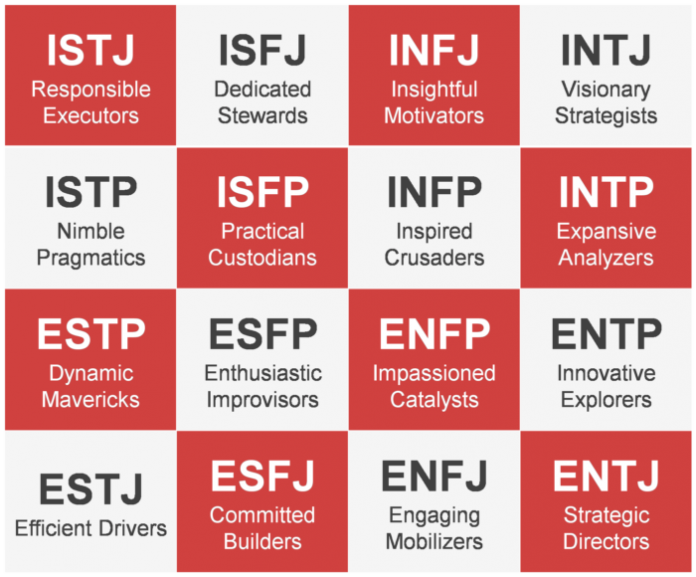When we say we are kind, stubborn, compassionate, or another identifier, we like to believe that what we are saying is true, or that we know ourselves best to accurately say who we are. However, we resort to psychoanalysis to help make the ultimate judgement in regards to our personalities.
Why is that? We all want and/or need validation about our identity, even if it means discovering a personality trait that is somewhat undesirable.
This is where the Myers-Briggs Type Indicator (MBTI) comes into play. Based on the conceptual theory by Jung, the test determines a person’s personality by asking questions about various situations in daily life, with sixteen different personality types to be paired with. A couple of years ago, I took the test because I was interested in finding out who I was as a person. In the end, I was pleasantly surprised with the result: ISFP (introverted, sensing, feeling and perceiving). Basically, I am a creative introvert who is sensitive to other’s feelings.
This test often circulates in the workplace, and mine is no different. A few of my colleagues took the test recently to uncover their true personality, with some being shocked with the result. It’s fascinating how regular people want to find out more about themselves for various reasons; they want to be assured in who they are, they need guidance in relationships or career path, or it could be because they’re just plain bored and wanted to do something to pass the time.
Regardless of the reasons, there is an underlying factor: we want a deeper understanding of ourselves, something tangible and concrete. We want to be able to point at something and declare, “That is me.”
If you would like to find out your MBTI personality, take the test here.

![5 Reasons You Should Travel Alone Airplane [image source: chau nguyen/ http://thedevilhatessweatpants.blogspot.com.au ], crowd ink, crowdink, crowdink.com, crowdink.com.au](https://crowdink.com/wp-content/uploads/2016/08/Chau-airplane-218x150.jpg)




























![5 Reasons You Should Travel Alone Airplane [image source: chau nguyen/ http://thedevilhatessweatpants.blogspot.com.au ], crowd ink, crowdink, crowdink.com, crowdink.com.au](https://crowdink.com/wp-content/uploads/2016/08/Chau-airplane-100x70.jpg)


